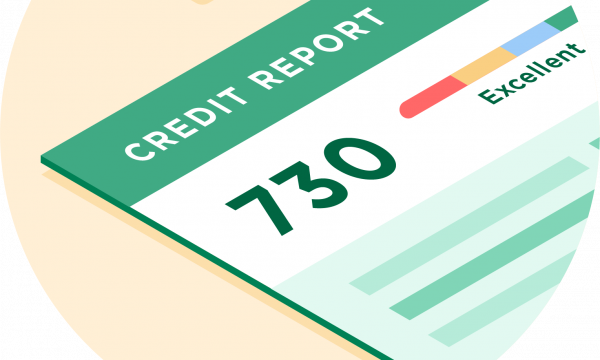The 3 Credit Bureaus and Why They Matter to You
Experian, Equifax and TransUnion are the three credit reporting agencies that gather data about your finances and compile them into credit reports, which determine your credit score.

Many, or all, of the products featured on this page are from our advertising partners who compensate us when you take certain actions on our website or click to take an action on their website. However, this does not influence our evaluations. Our opinions are our own. Here is a list of our partners and here's how we make money.
Did you know...
Credit bureaus matter because they shape your credit reports and scores, which influence whether you can get loans, credit cards or even housing. Since your information can vary by bureau, it’s important to check all three, dispute errors quickly and use tools like credit freezes when needed. What are the 3 credit bureaus?
The three major credit bureaus are Equifax, Experian and TransUnion. Credit bureaus gather and maintain data on consumers' credit use, which means that if you have a credit card or a loan, you probably have a credit file with one, two or all three major credit bureaus.
Sometimes called credit reporting agencies, these credit bureaus can collect and sell information on your consumer credit behavior without your consent. However, businesses that check your credit, such as credit card issuers and lenders, must have a legitimate reason to look at your credit file — for example, a lender might look at your credit because you applied for a loan or a credit card.
In most cases, potential lenders must have your permission.
If data privacy is a concern, you should know that credit bureaus are highly regulated by the Fair Credit Reporting Act, which puts limitations on how they collect and share your personal data.
» Get your free credit report from NerdWallet today
Stress less. Track more.
See the full picture: savings, debt, investments and more. Smarter money moves start in our app.
What data do the credit bureaus collect?
Your credit reports include identifying information, such as your name, birthdate, Social Security number and addresses (past and present).
Credit reports also can contain:
- A list of current and past credit accounts.
- Payment history, or the record of whether you paid your bills on time.
- Negative information, also called derogatory marks, which includes collections, bankruptcies, repossessions and foreclosures.
- A record of who has accessed your credit report, for instance, when you apply for credit or when a marketer wants to preapprove you for an offer.
» Learn more: How long do derogatory marks stay on your credit file?
How is the information on your credit reports used?
The information in your credit reports goes far beyond borrowing — it can influence major financial and everyday decisions. Here are some of the most common ways it’s used:
- Calculating your credit scores.
- Determining whether you qualify for a loan or credit card, and what interest rate you’ll pay.
- Reviewing your background for certain job applications.
- Approving or denying a rental application.
- Setting the cost of some types of insurance.
- Deciding whether you’ll need to pay for a deposit for utilities.
What information is not in my credit reports?
Your credit reports do not contain your credit score. The major credit scoring companies, FICO and VantageScore, use the data from your credit reports to calculate your score.
Some types of accounts don't routinely show up on your report, such as utilities and rent. But those accounts can still end up on your report if there's a payment problem that leads to a debt collection, which is a negative mark that appears on your credit reports.
Other personal information is excluded, such as your race, marital status, religion, gender, citizenship or criminal records.
Where do the credit bureaus get their data?
Creditors report how you handle accounts, including payment history, to the credit bureaus. They're not required to report to the credit bureaus, but most do because information on how borrowers have handled credit cards and loans in the past helps them make lending decisions.
Creditors may report to one, two or all three bureaus — so your credit report at each bureau can vary a bit from the others.
Some types of accounts don't routinely show up on your report, such as utilities and rent. But those accounts can still end up on your report if there's a payment problem that leads to a debt collection.
Data also comes from public records, such as repossessions, bankruptcy filings and foreclosures.
Can other types of data help my credit reports?
If you are new to credit, you might benefit from getting other types of account information added to your reports. Options include:
- Rental payments: If you're a renter, you can look into rent reporting services that report your on-time rental payments to credit bureaus to build a record of positive payment history.
- Phone, streaming services and utility payments: You can use one of the newer products that gather some data from bank accounts you link, such as Experian Boost and UltraFICO.
How can I check my credit reports?
You're entitled to free weekly credit reports from each bureau. Use AnnualCreditReport.com to download your reports. It's important to check all three reports because credit bureaus operate independently, and each may receive information from a different set of sources.
Make sure your identifying information and account information are correct, because mistakes can lower your credit scores.
You can also check on personal finance websites that offer free credit reports, such as NerdWallet.com. NerdWallet’s credit report uses TransUnion data.
» Learn more about how to read your credit reports
Request your credit reports in Spanish
You can request your credit report in Spanish directly from each of the three major credit bureaus:
- TransUnion: Call 800-916-8800.
- Equifax: Visit the link or call 888-378-4329.
- Experian: Click on the link or call 888-397-3742.
Usted puede solicitar una copia de su informe crediticio (gratis y en español) de cada una de las tres principales agencias de crédito:
- TransUnion: Llame al 800-916-8800.
- Equifax: Visite el enlace o llame al 888-378-4329.
- Experian: Haga clic en el enlace o llame al 888-397-3742.
What if I see a mistake on my credit report?
If you see an error, you should dispute it quickly. The process requires you to file a formal complaint online, by phone or by mail. The bureaus are required by law to respond in a timely manner. and the bureau must respond. Each credit bureau has a slightly different procedure for disputing.
It’s important to fix a mistake with all three major bureaus, because credit reporting agencies do not share information.
» Need a credit bureau’s phone number? We got you covered.
Frequently Asked Questions
Why doesn’t my credit report show a credit score?
While the law requires the credit bureaus to let you see the information in your credit reports, there is no such requirement for credit scores. You can get a free credit score from many personal finance websites, such as NerdWallet, banks and credit card issuers.
How are credit scores calculated?
Credit scores are numbers based on the information in your credit reports. The most common scoring models (like FICO and VantageScore) look at five main things: payment history, credit use, length of credit history, types of credit and how often you apply for or open new accounts.
These formulas weight each factor differently, which is why your FICO score and VantageScore are different. Because each bureau may have slightly different information, your credit scores may vary.
Are credit scores from all major bureaus the same?
Your credit score will likely vary depending on whether it is based on data from Experian, Equifax or TransUnion. These differences exist because creditors report your payment history and other financial behaviors to the credit bureaus, but they don’t have to report to every bureau. So, one credit bureau might have more information than the other two, making your credit score different.
These differences aren’t a cause for alarm. The only cause for worry is if one bureau reports a score that is drastically different from the other two. Then, it’s time to check your credit reports for errors and dispute them.
Article sources
NerdWallet writers are subject matter authorities who use primary,
trustworthy sources to inform their work, including peer-reviewed
studies, government websites, academic research and interviews with
industry experts. All content is fact-checked for accuracy, timeliness
and relevance. You can learn more about NerdWallet's high
standards for journalism by reading our
editorial guidelines.
Related articles









